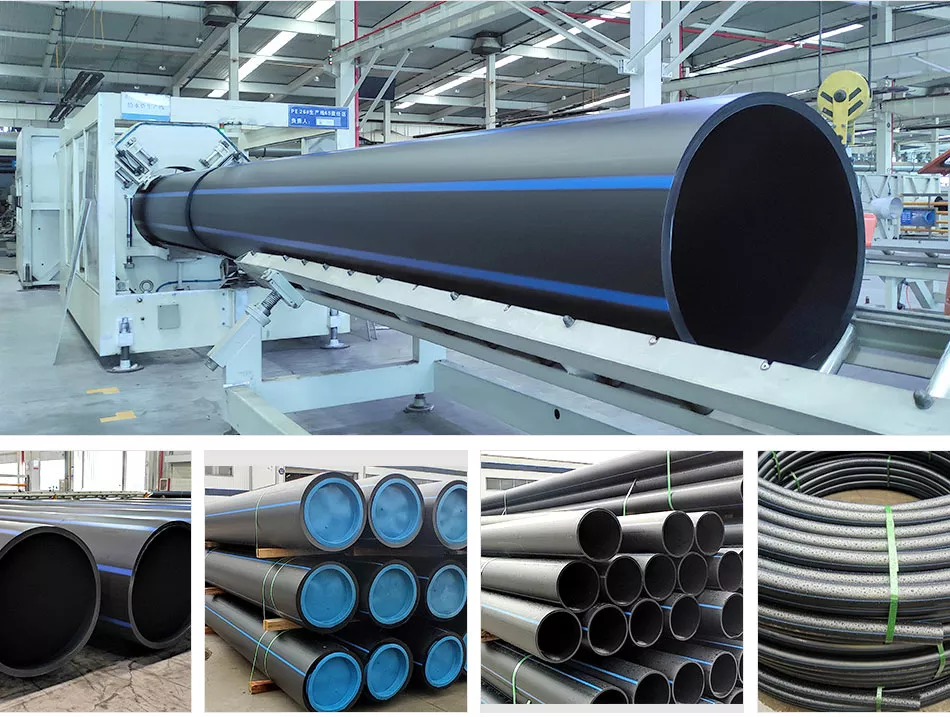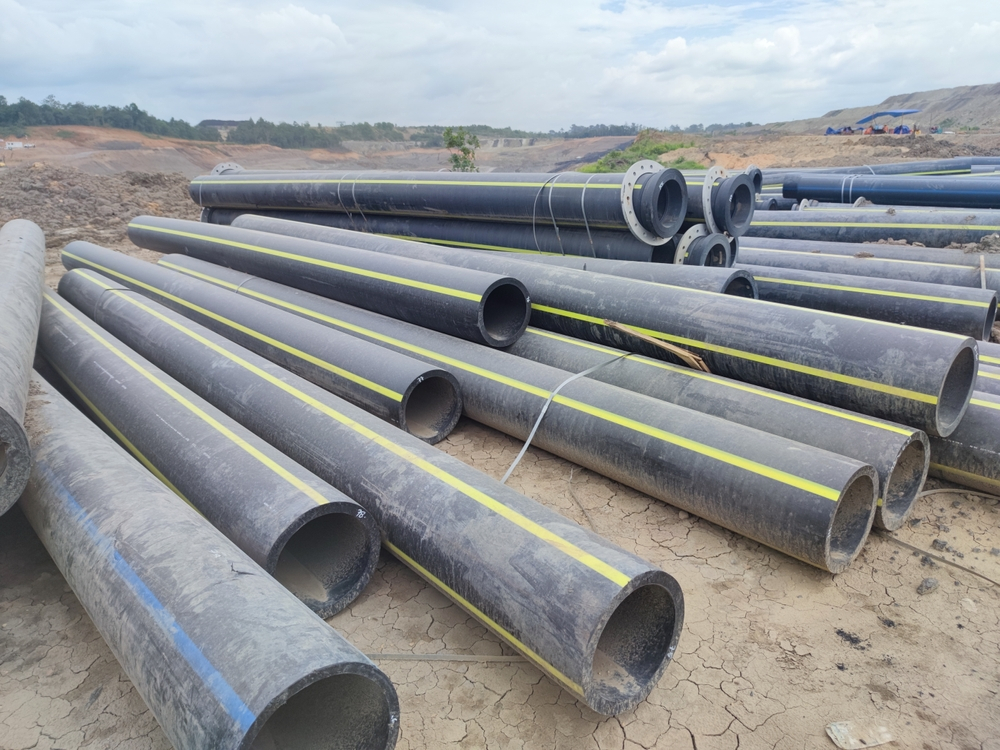Pipe Manufacturing Midland TX: From Raw Material to Finished Pipe
Comprehending the Trick Conveniences of HDPE Pipeline for Water and Wastewater Monitoring
Using HDPE pipe in water and wastewater management offers many benefits that warrant consideration. Its phenomenal resilience and lengthy life expectancy make it a favored option for numerous projects. In addition, the material's resistance to corrosion and chemical damages improves its reliability in different environments. Nevertheless, the advantages extend beyond just durability and resistance. Exploring its cost-effectiveness and environmental effect discloses a lot more engaging reasons for its widespread fostering in contemporary framework
Remarkable Toughness and Durability

HDPE pipe sticks out for its exceptional resilience and longevity, making it a favored option in water management systems. Constructed from high-density polyethylene, these pipelines can withstand significant stress and anxiety, guaranteeing trustworthy performance in time. Their robust nature enables them to endure severe ecological conditions, including temperature level variations and soil motions, which can cause other products to stop working.
The life-span of HDPE pipelines usually exceeds half a century, providing an economical solution for districts and industries alike. Additionally, the material's light-weight homes streamline installation, reducing labor costs and timeframes. This resilience decreases the requirement for frequent repair services or substitutes, even more enhancing its economic allure.
In water monitoring applications, the integrity of HDPE pipelines indicates less disturbances and improved service connection, making them integral to sustainable framework growth. The combination of toughness and durability solidifies HDPE's duty as a cornerstone in efficient water monitoring remedies.

Resistance to Rust and Chemical Damage
While several materials yield to rust and chemical damage over time, HDPE pipes show exceptional resistance, making them ideal for various water management applications. This strength originates from the molecular framework of high-density polyethylene, which is naturally non-reactive and does not rust like steels or weaken from direct exposure to severe chemicals. Consequently, HDPE is highly reliable in settings with hostile compounds, such as wastewater systems that might consist of acids, bases, and natural solvents.
In addition, HDPE pipes can stand up to ecological variables such as soil level of acidity and saline conditions, even more enhancing their suitability for diverse applications (American Plastics HDPE Pipe Manufacturing). Their ability to maintain structural honesty over time lowers the risk of leakages and failures, which is important in making certain the security and integrity of water distribution and wastewater monitoring systems. Consequently, the resistance to rust and chemical damage markedly adds to the total effectiveness and long life of HDPE piping remedies
Cost-Effectiveness and Economic Benefits
When thinking about the monetary effects of water administration systems, the cost-effectiveness of HDPE pipes ends up being evident. These pipelines offer lower installation and maintenance expenses compared to traditional materials like steel or concrete. Their light-weight nature simplifies transport and installment, resulting in lowered labor expenses. Additionally, HDPE pipes display a lengthy lifespan, usually exceeding 50 years, which converts to fewer replacements and long-lasting savings.
The resistance of HDPE to rust and chemical damages lessens the requirement for expensive repair work and replacements. The pipelines additionally sustain efficient water circulation, lowering energy prices connected with pumping systems. By minimizing leakages and water loss, HDPE pipelines contribute to substantial financial advantages for towns and markets alike. In general, the first financial investment in HDPE piping can generate significant financial returns over the life-span of the water monitoring system, making it a prudent choice for sustainable framework advancement.
Ecological Sustainability and Reduced Impact

Versatility and Adaptability in Setup
Since of their unique properties, HDPE pipes supply exceptional look at these guys flexibility and adaptability in installation, making them appropriate for a broad variety of applications. Their lightweight nature allows for simpler handling and transportation, decreasing labor costs and installment time. HDPE pipelines can be bent and shaped to fit numerous terrains and job requirements, which is specifically beneficial in testing settings.
Furthermore, their resistance to deterioration and chemical damages permits installment in diverse settings without the requirement for specialized protective layers. The capacity to fuse joints develops a constant, leak-free system, enhancing the overall stability and dependability of the installation. HDPE's flexibility also fits ground movement, lowering the risk of damage in areas prone to moving dirt. Generally, these features make HDPE pipes not just flexible yet likewise a preferred choice for water and wastewater monitoring systems.
Frequently Asked Concerns
How Does HDPE Pipe Compare to PVC in Water Administration Applications?
HDPE pipeline supplies remarkable flexibility, resistance to corrosion, and resilience contrasted to PVC. Its lighter weight facilitates less complicated installment, while its long lifespan minimizes replacement expenses, making HDPE a recommended option in water administration applications.
What Is the Lifespan of HDPE Pipes Under Regular Conditions?
Under normal problems, HDPE pipelines can have a life-span varying from 50 to 100 years. Their resilience and resistance to corrosion add to their long-term efficiency in various applications, making them a trusted choice for infrastructure.
Are HDPE Pipes Recyclable After Their Solution Life?
Yes, HDPE pipelines are recyclable after their service life. Midland TX HDPE Pipe Fittings in Stock. They can be refined and repurposed right into brand-new products, significantly minimizing environmental influence and promoting sustainability within the industry, making them an environment-friendly choice for piping remedies
What Is the Installation Process for HDPE Piping?
The installment process for HDPE pipelines involves website prep work, trenching, pipe fusion or mechanical joining, backfilling, and stress testing. look at this now Proper techniques ensure a long lasting and effective system for transporting water and wastewater properly.
Can HDPE Piping Be Made Use Of for Both Safe And Clean and Non-Potable Water Systems?
Yes, HDPE pipelines can be used for both drinkable and non-potable water systems. Their versatility, toughness, and resistance to rust make them appropriate for various applications, making sure risk-free and reliable transport of water in various contexts.